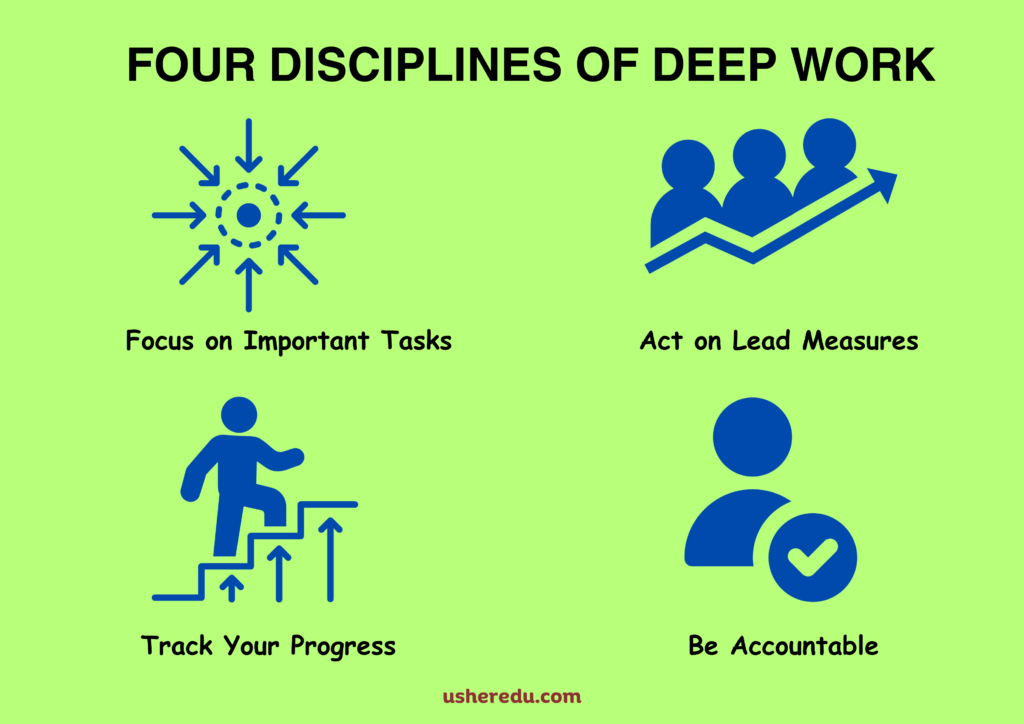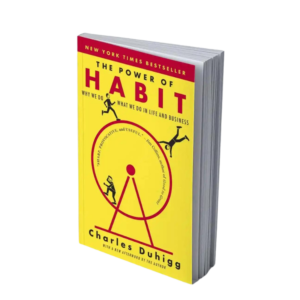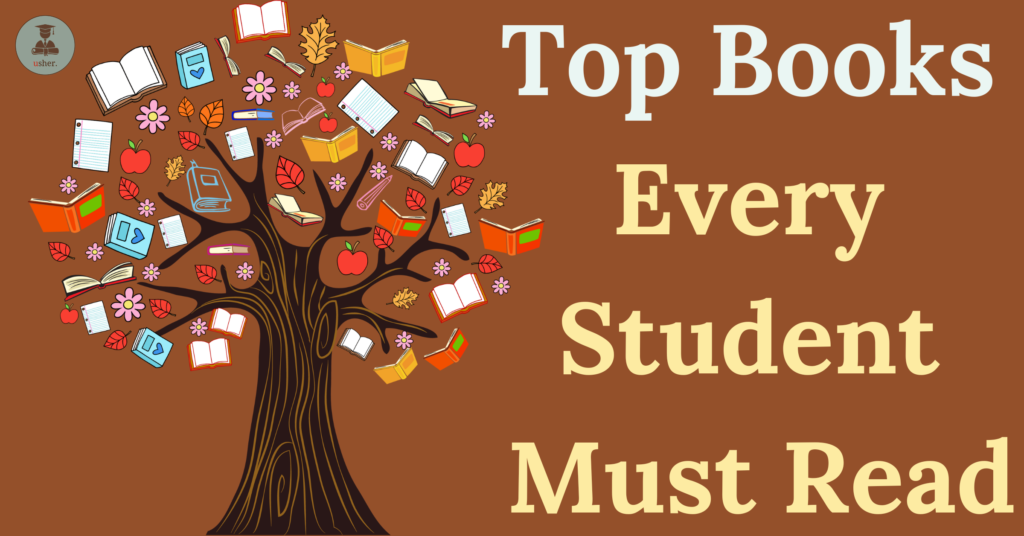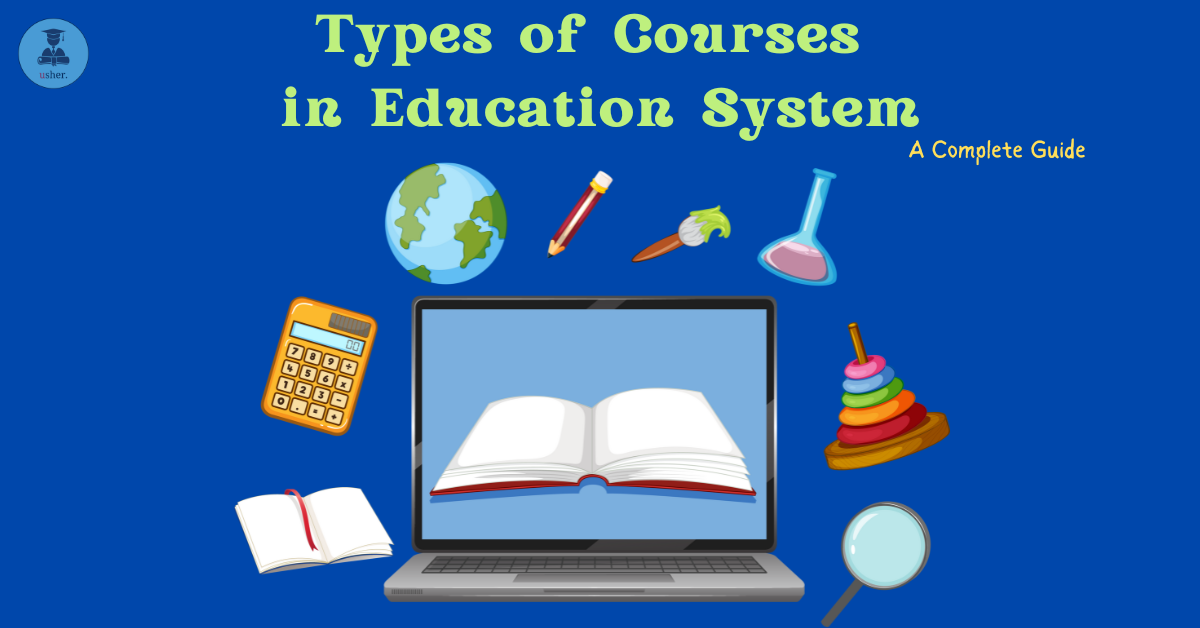A book is a gift you can open again and again
-Garrison Keillor
Do you read books?
I truly enjoy reading, and they support me through both good and bad times.
I completely agree with Garrsion Keillor; they are a wonderful gift that one can return to and enjoy again and again.
For students, developing the habit of reading books is incredibly important, as it offers numerous benefits for their intellectual, academic and personal development.
While reading books in any genre is beneficial for students, reading self-help books specifically helps with vocabulary development, critical thinking, personality development, and communication skills.
Here is a list of self-help books that I have read and would recommend to any student.
7 Habits of Highly Effective People

This book is the pinnacle of productivity and self-improvement.
The 7 Habits of Highly Effective People, written by Stephen R. Covey, is a timeless classic that offers practical advice on how to become more effective in both personal and professional life.
Covey’s book provides valuable insights and strategies for developing a proactive mindset, setting and achieving goals, and building strong relationships. It emphasizes the importance of taking responsibility for one’s own actions and choices and encourages readers to prioritize their values and live a purposeful life.
This book is a must-read for any student looking to enhance their productivity, self-discipline, and overall effectiveness in various aspects of life.
Key takeaways
- Being proactive and taking control of your life by recognizing that your behavior is a product of your own choices, not your conditions.
- Have a defined personal goal to guide your daily actions.
- Prioritizing tasks based on importance.
- Maintain your physical, mental, emotional, and spiritual well-being. Self-care keeps you at your best.
Eat That Frog

Brian Tracy’s book Eat That Frog focuses on the idea of overcoming procrastination and increasing productivity.
The book suggests that tackling your most challenging and important task, or “eating the frog,” first thing in the morning can set the tone for a productive day.
It emphasizes the importance of breaking tasks into smaller, manageable steps and creating a clear plan of action to avoid feeling overwhelmed.
Tracy emphasizes the significance of focusing on high-value activities that align with your goals, rather than getting caught up in low-priority tasks.
I recommend this book to every school-going student.
Key takeaways
- Set priorities for the tasks that will have the biggest impact on you because you will probably put them off.
- Plan and set goals for your tasks.
- Apply the pareto principle, which states that 20% of efforts yield 80% of results. Determine and prioritize these tasks.
- Eliminate distractions and leverage technology to increase productivity and manage time efficiently.
- Have a positive mindset.
Can't Hurt Me

Before I talk about this book, I want you to understand that challenges and struggles in life are inevitable.
In life, you will encounter challenges that you must overcome to succeed.
What sets successful individuals apart is their ability to overcome these challenges and use them as opportunities for growth.
Can’t Hurt Me by David Goggins is a powerful memoir that showcases the author’s incredible journey from a troubled childhood to becoming a Navy SEAL and ultra-endurance athlete. Through his story, Goggins teaches readers the importance of embracing discomfort, pushing past limits, and developing mental resilience.
I promise you that this book will motivate you to face your fears, overcome obstacles, and succeed in the end.
Key takeways
- Embrace suffering
- Goggins stresses that the human mind is amazing and that discipline and self-motivation can overcome physical and mental obstacles.
- In order to help readers become more self-aware and drive change, Goggins presents the idea of the “accountability mirror,” in which he advises them to be brutally honest with themselves about their flaws.
- Learning from failures and staying humble
Who Moved My Cheese?

Who Moved My Cheese? is a motivational book written by Spencer Johnson that explores the importance of adapting to change and embracing new opportunities.
The book uses a simple parable about mice and little people in a maze to illustrate how fear and resistance to change can hinder personal and professional growth.
By emphasizing the need to let go of old beliefs and embrace uncertainty, Johnson encourages readers to overcome their fears, adapt to change, and ultimately find success in their lives.
Key takeaways
- In life, resistance to change can result in frustration and unhappiness.
- “Cheese” signifies your life goals—success, pleasure, or fulfillment. Track your goals and desires.
- Let go of your past and embrace the future (unknown).
- Admit that you will make mistakes along the way, and take lessons from them.
- Real satisfaction and achievement come from within. Your happiness and success shouldn’t depend on others.
Therefore find your “Cheese.”
Deep Work

Cal Newport’s book Deep Work: Rules for Focused Success in a Distracted World is a self-help and productivity guide. The book provides information and techniques to help people enter a state of deep work, which is defined as intense, undistracted concentration on mentally challenging tasks.
Key takeaways
- The book offers ways to incorporate deep work into ordinary living. Time-blocking, “deep work” periods, and distraction reduction are examples.
- Newport defines deep work as monastic (total isolation), bimodal (dedicated days), rhythmic (regular schedule), and journalistic.
- The “grand gesture” creates an environment or change to facilitate serious work. This could be a dedicated workplace or a ritual to start intensive work.
- Those who can concentrate and produce high-quality work will have a competitive advantage.

The Power Of Habit

In his book The Power of Habit, Charles Duhigg explores the science behind habit formation and how it can be harnessed to achieve success.
He emphasizes the importance of understanding the cue-routine-reward loop and how it can be manipulated to create positive habits.
By identifying triggers, implementing new routines, and rewarding ourselves for completing them, we can effectively change our behaviors and make deep work a natural part of our daily lives.
Key takeaways
- The book centers on the habit loop—cue (trigger), routine (habit), and reward. Understanding this loop is key to changing habits.
- An effective habit change requires the same cue and reward, according to the golden rule. The routine changes.
- Regardless of significant shifts in lifestyle habits, maintaining positive behaviors requires recognising resilience.
- Some habits affect other areas of your life more than others. Changes to keystone habits can have broader benefits.
Atomic Habits

Atomic Habits by James Clear is a book that delves into the power of small habits and how they can lead to remarkable results.
Clear emphasizes the importance of making tiny, incremental changes that compound over time.
He introduces the concept of “atomic habits,” which are small actions that have a big impact on our overall behavior and success.
By focusing on these atomic habits and understanding the habit loop, we can make lasting changes in our lives and achieve our goals.
This is by far one of the most practical and actionable books on habit formation.
It also highlights the importance of mindset shifts and creating an environment that supports our desired habits, making it easier to stick to them in the long run.
Key takeaways
- Small incremental changes (atomic habits) can lead to significant long-term transformations.
- To create a new habit, make it obvious by having a clear cue. To break a habit, make it invisible by removing the cues and cravings associated with it.
- Make bad habits less attractive by implementing immediate and negative consequences for them.
- Habits work best when they are demanding but feasible. Keep tasks in the Goldilocks zone.
- Begin a new habit in under two minutes. This would make it easy to get started and build momentum.
- Focus on your systems (habits) rather than your goals. Achieving a goal is a momentary change, but habits can lead to lasting improvement.
No Excuses

No Excuses: The Power Of Self Discipline is a book written by Brian Tracy that explores the importance of self-discipline in achieving success.
Tracy emphasizes the need to take responsibility for one’s actions and eliminate excuses that hinder progress.
He provides practical strategies for developing self-discipline, such as setting clear goals, creating effective routines, and maintaining a positive mindset.
The book serves as a guide for individuals seeking to overcome obstacles and cultivate the discipline necessary for personal and professional growth.
Key takeaways
- Self-discipline is essential for success in career, finances, health, and relationships.
- To cultivate self-discipline, you must set clear and specific goals.
- Self-discipline requires effective time management. Focus on high-value tasks to boost productivity.
- Develop the ability to persevere through setbacks and failures. Resilience is a vital component of self-discipline.
- Push through hardships to build mental toughness.
- Once you set a goal, stay committed to it.
- The book encourages readers to ditch their excuses and take full control of their lives.
Reading these books will provide valuable insights and strategies for developing your personality. By implementing the principles and techniques outlined in these books, individuals can cultivate the necessary mindset and habits to achieve their goals.
These books teach readers to push through hardships and develop mental toughness, allowing you to overcome obstacles and achieve success.
Ultimately, the message of these books is clear: It is up to each individual to take full control of their lives and ditch any excuses that may be holding them back.
All the Best!




